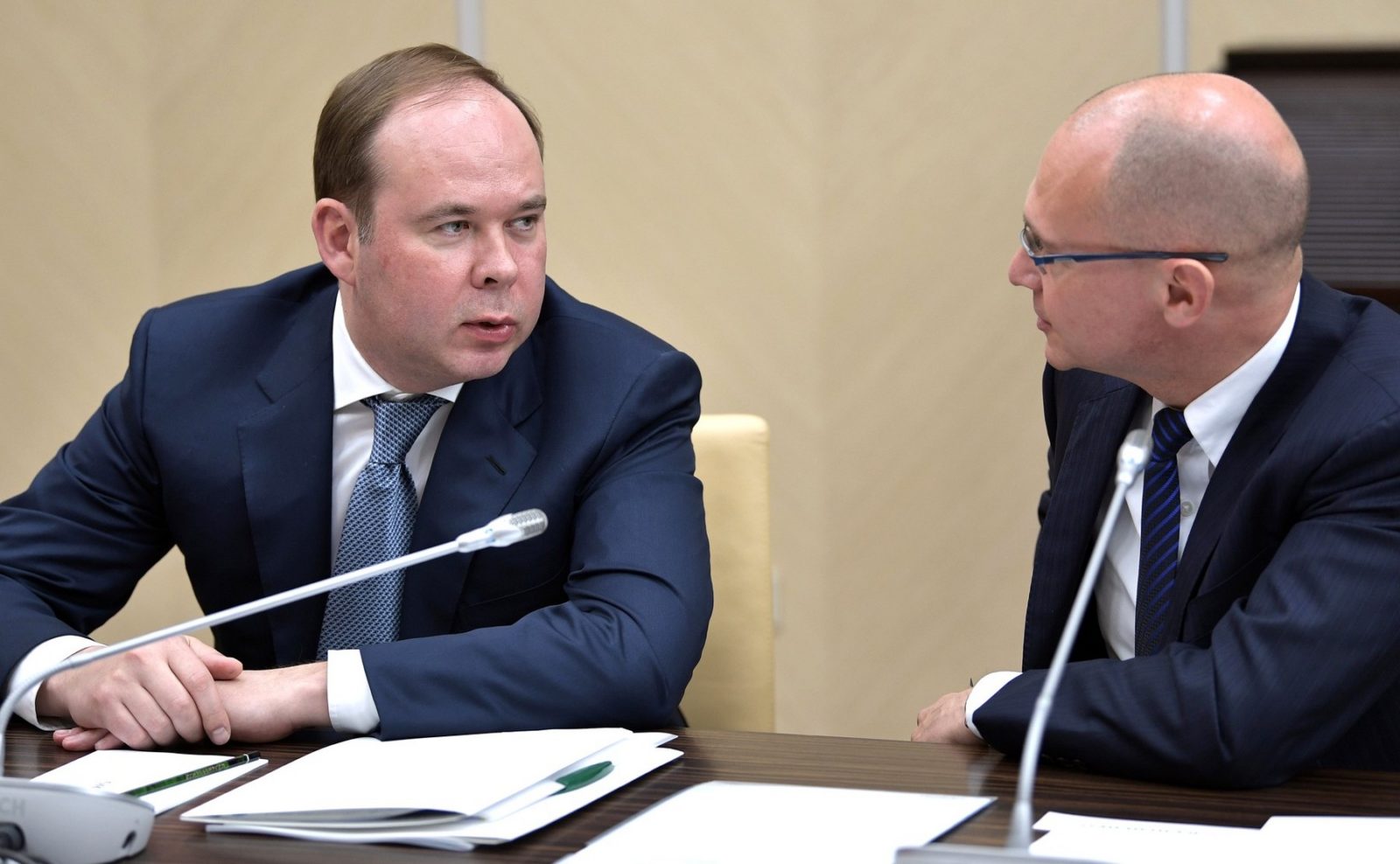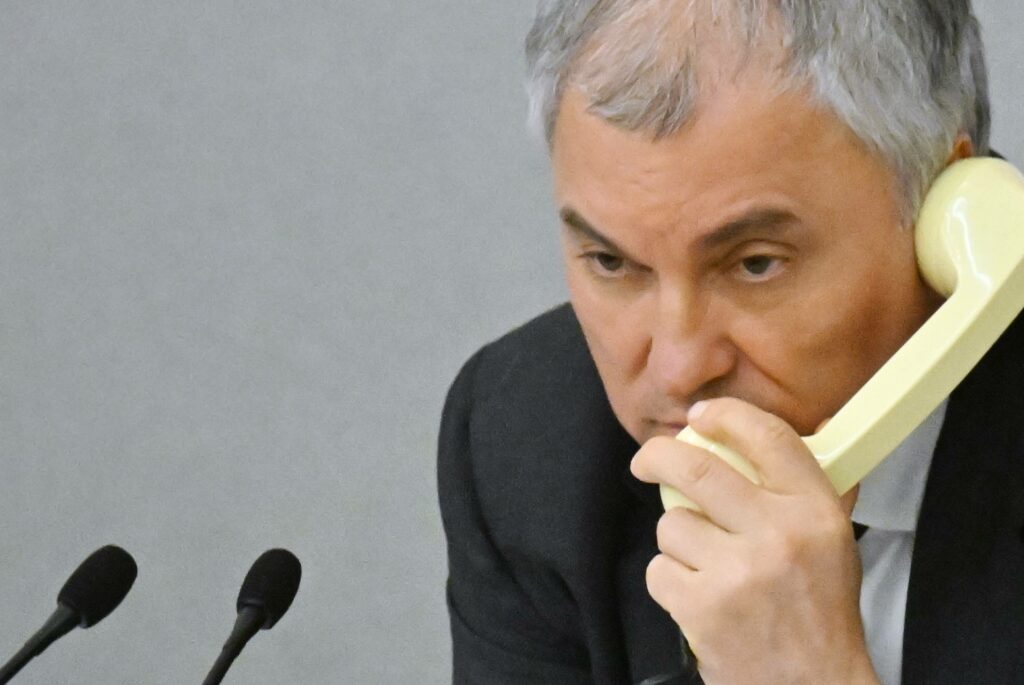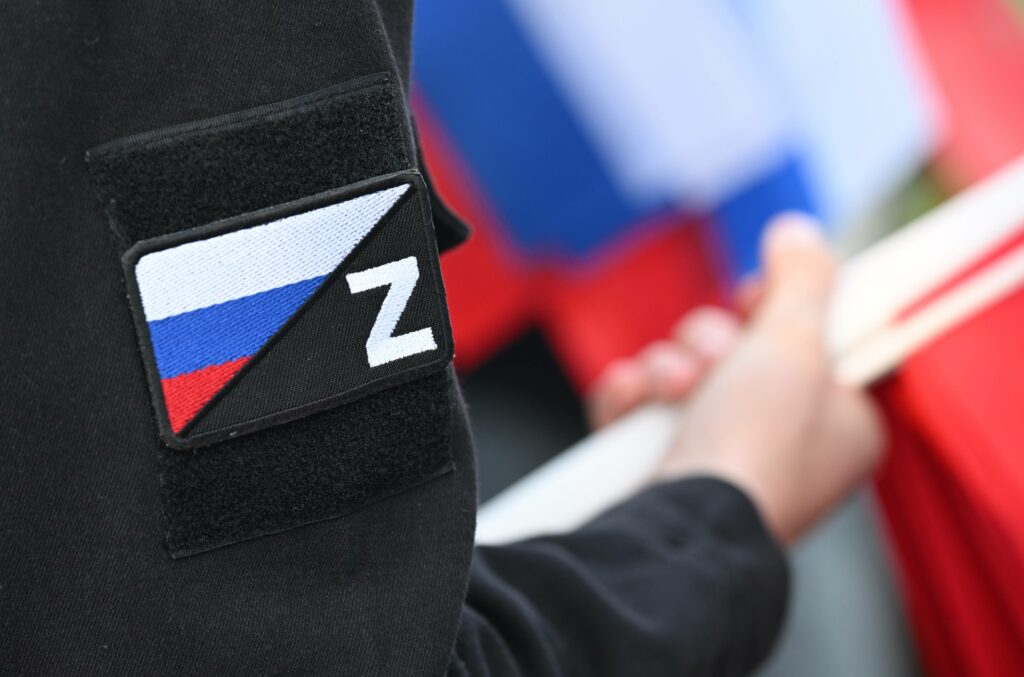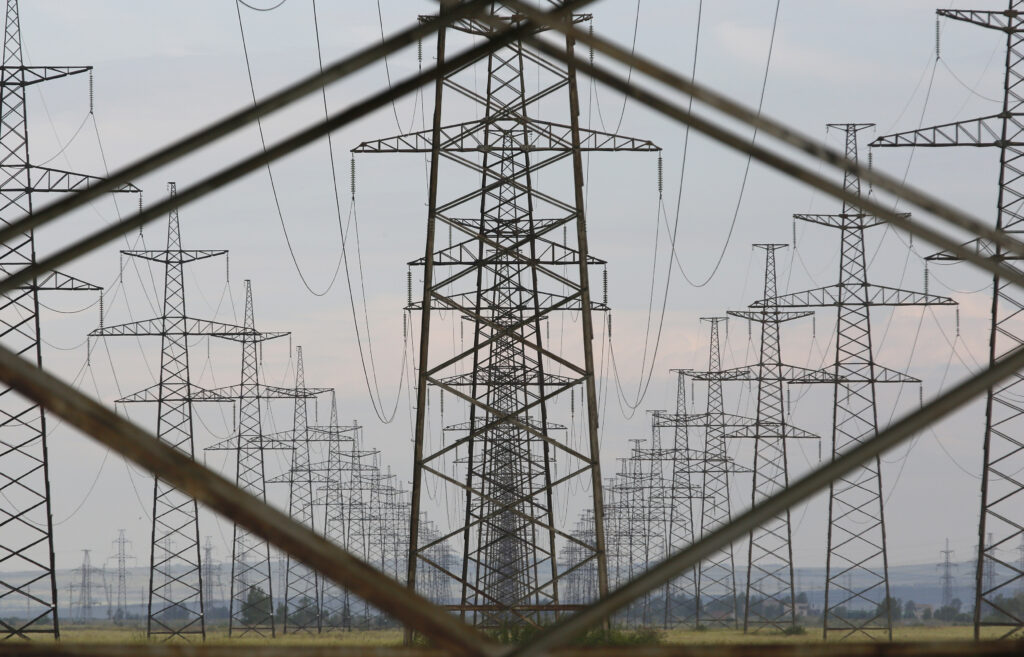Russia is a highly centralised state. Formally, the president is the guarantor of the Constitution but he is in reality the head of the executive. Informally, the President of Russia also controls the Parliament, intelligence services and courts. His powers are largely channelled via the Presidential Administration (PA). In this third article in the series ‘Russia’s staff’, we discuss the composition of the Staff of Russia’s President occupying the building at number four Old Square.
The Old Square with a modern twist
Today’s powers vested in the PA date back to 1991−1993, when the administration established by President of the RSFSR Boris Yeltsin in the summer of 1991 expanded together with the growing confrontation between the President and Supreme Council. The powers of the president were formally reinforced following the crackdown on the Supreme Council, and the former has since then been able to create or dismiss a government, issue decrees and veto draft laws. As noted by Timothy Frye, his political powers were not clearly defined in the Constitution, which allowed Yeltsin to survive under various political circumstances. As of late 1993, the formal degree of presidentialism in Russia was second only to that of Turkmenistan among all post-Socialist republics, trailing by a mere 0.5 points (the presidentionalism index is calculated based on 27 formal characteristics of the powers of the president, from the right to convene and participate in government meetings to the right to dissolve parliament and appoint the governor of the central bank).
The parliamentary opposition can hardly intervene in the President’s appointment of the chairman of the government (the prime minister), since the parliament is dissolved in the case of a triple vote against the proposed candidate. Therefore, it is beneficial for the opposition to cooperate with the president in order to keep their seats in parliament. Moreover, according to Steven Fish, the president has strong informal leverage at hand to curtail the independence of parliament. For example, even rent-free apartments for MPs and high-ranking officials are distributed by the Presidential Property Management Directorate, which was formally part of the Presidential Administration until 1995.
As pointed out by Olga Kryshtanovskaya and Stephen White, the Presidential Administration in many respects resembles the Central Committee of the Communist Party of the Soviet Union (the CC of the CPSU), and occupies the same building. Even the number of staff, i.e. approximately 1,500 people, was the same in the 1990s. However, from a formal point of view, the CC of the CPSU was more democratic; the Committee was elected at a Party Congress and all the governing bodies (the Political Bureau, Secretariat and the General Secretary) were elected by the members of the CC. In today’s Russia, the PA is fully controlled by the president and is not elected. This aside, the PA’s powers are not stipulated in the Constitution and its composition is determined by presidential decree. And even United Russia cannot interfere in the functioning of the PA.
According to Tatiana Stanovaya, who consistently focuses on the individual role of the President of Russia, the State Duma is governed by the PA. The government is subordinate to the president (in other words, it is supervised by the PA) while regional governors have no political autonomy and are controlled by presidential plenipotentiary envoys to the regions. Moreover, the PA also dictates foreign policy: it supervises both the Ministry of Foreign Affairs (MFA) and certain areas of foreign policy (Ukraine and CIS countries). All in all, the PA has become the mastermind behind the state authorities. Formally, it is part of the broader presidential staff. Informally, the PA is the dominant state authority: it is a decision-making body. Consequently, the PA determines Russian policy to a great extent. The failed September 2018 election and president’s declining approval ratings have put the PA in a difficult position: either further centralisation of power will follow, accompanied by a crackdown on any manifestations of the free will of the people, or else ‘the free-floating political regime’ will be allowed. It is difficult to guess what decisions will eventually be made, but they will definitely be executed by the PA or, more precisely, its staff.
The masterminds and knights of the President
The reader might get the impression that the PA is an omnipotent body running Russia at the behest of Vladimir Putin. Despite its disproportionate influence, the PA is an executive body with its internal processes and functional logic.
Informally, the PA is divided into two pillars. The first is in charge of cooperation with the president. The Protocol and Organisation Directorate and Press and Information Office are formally responsible for what Vladimir Putin reads, where he goes and who he meets. The President undoubtedly has other sources of information at hand and the schedule is coordinated along with the security service, but these directorates are as close as one can get to the President. The other pillar of the PA is directly responsible for the implementation of state policy. This is the so-called ‘domestic policy bloc’ comprising expert management (in charge of the analytical work of the government), domestic policy actors (the State Duma, parties and governors), bodies in charge of public policy and personnel issues (screening of the leadership of the executive and judges), civic actors (NGOs and GONGOs, youth policy), and agencies for ICT development and communications infrastructure.
Foreign policy is shaped by the PA via the Foreign Policy Directorate, the Presidential Directorate for Cross-Border Cooperation, and the Presidential Directorate for Interregional Relations and Cultural Contacts with Foreign Countries. Apart from directorates, there are numerous councils and commissions in the PA that do not fulfil administrative functions, but that serve as advisory bodies that pass on information to the President. Finally, the presidential envoys to the regions and public authorities are part of the PA. There is also a plethora of advisors and assistants.
Despite the bureaucratic structure of the PA, the human factor impacts the effectiveness of this body. To begin with, the personal ambitions of certain officials and their affinity to the President play a role here. For example, Vyacheslav Volodin has taken advantage of his new position in the State Duma and adjusted its relations with the PA. He publicly admitted that some of the repressive laws (on Messengers, terrorism and rallies) had been developed by the PA although they were formally submitted by MPs. Secondly, the efforts of the PA are hindered by conflicts of interest with other authorities working on the same issues. For example, their efforts are hampered by the siloviki and Ministry of the Interior, who interfere with the interests of the foreign bloc of the PA. Finally, there exists a hierarchy of presidential advisors and aides. There is an obvious difference between the presidential advisor on relations with Ukraine Vladislav Surkov and the former advisor for the development of the Internet German Klimenko (not included in the sample since he was dismissed in June 2018); the latter met President Putin only once in two years. Aides are full-time officials often employed in PA directorates while advisors are experts often close to the President.
Education and experience of the staff
We have analysed the biographies of 65 high-ranking public officials who were employed in the PA as of September 2018. These include heads of directorates, presidential aides, plenipotentiary envoys to the regions, employees of the Security Council and other high-ranking officials listed on the PA’s website. Information about their education was compiled from the PA’s website and media. In total, about 2,500 people are employed in the PA but the article focuses on the top management of the administration. Therefore, the focus of the analysis is on political positions, since ordinary posts are filled according to bureaucratic logic.
In total, 19% of top PA employees are graduates in international relations or history, 22% are graduates of technical universities, 17% are graduates in law or state and municipal management, 14% are economists and 20% are siloviki. The education of 6% of high-ranking officials in the PA did not fit this classification (journalism, pharmacology, educational sciences and psychology), information about two public officials could not be found. Twenty-one percent of top PA officials have a second university degree. On average, the second degree was earned 10 years after the first graduation diploma.

Fifty-six percent of the heads of PA directorates have undergone education in the fields of: law/ state and municipal management; economics; international relations or history. Twenty-five percent of managers are techies, two are graduates of the Military Academy and one is a journalist by training. Only three had previously worked in either law enforcement or the military sector: the head of the Presidential Document Processing Directorate (the Armed Forces), the Presidential State Decorations Directorate (the Armed Forces) and the Presidential Anti-Corruption Directorate (the KGB). The PA foreign policy bloc comprises a former diplomat (Igor Neverov), a chemical technologist (Oleg Govorun) and an economist (Vladimir Chernov). The PA domestic bloc is represented by an economist/lawyer (Andrei Yarin of the Presidential Domestic Policy Directorate), an agrarian with a Hungarian university diploma (Vladimir Simonenko of the Presidential Experts’ Directorate), a lawyer who was a member of the 1993 Constitutional Committee and is a graduate of the General Staff courses (Anton Fyodorov of the Presidential Civil Service and Personnel Directorate) and journalist Sergey Novikov (the Presidential Directorate for Social Projects).
The PA law enforcement bloc comprising management of the Security Council is dominated by the siloviki: 75% of these officials have qualifications and experience in the field of intelligence services. Three officials with civilian experience are graduates of the Moscow State Institute of International Relations (MGIMO), Plekhanov Russian University of Economics and Rybinsk State Aviation Technical University. There is a clear political vein running through the nominations. For example, Oleg Khramov, a KGB officer with 44 years’ experience is the Deputy Secretary of the Security Council of the Russian Federation, whereas his colleague Sergei Vakhrukov, who worked in the Komsomol, was the governor of the Yaroslavl Oblast and became an aide to the Secretary of the Security Council in as late as 2013. He was promoted to the position of the Deputy Secretary three years later.
It is rather difficult to single out specific characteristics of the Presidential Administration of Russia. The top echelon of the PA resembles a puzzle put together using pieces from different jigsaws. On the one hand, there is a political logic behind the appointment of systemic people whose appointments may appear strange from a formal point of view (for example, the educational backgrounds of some officials raise concerns about their occupational suitability). However, they have been part of state power long enough to be considered vital links in the pipeline of implementing the president’s orders and providing feedback. On the other hand, there are also technocrats with suitable education and work experience. Their roles are to implement the President’s decisions before they are picked up by other authorities. All of this only serves to prove that the Presidential Administration of Russia is a non-democratic body accountable only to the President and not to the Parliament, nor to civil society.
Read the second part of a series ‘Russia’s Human Resources’ – Is Russia a «Militocracy»?
Read the fourth part of a series ‘Russia’s Human Resources’ – Government and State-Run Companies









